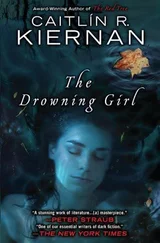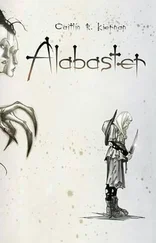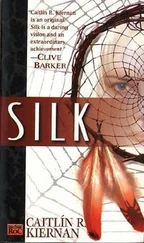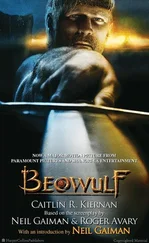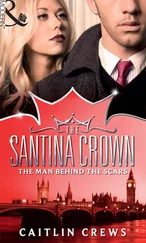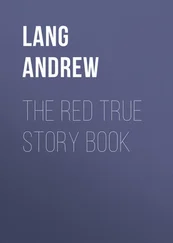Caitlin R. Kiernan - The Red Tree
Здесь есть возможность читать онлайн «Caitlin R. Kiernan - The Red Tree» весь текст электронной книги совершенно бесплатно (целиком полную версию без сокращений). В некоторых случаях можно слушать аудио, скачать через торрент в формате fb2 и присутствует краткое содержание. Жанр: Ужасы и Мистика, на английском языке. Описание произведения, (предисловие) а так же отзывы посетителей доступны на портале библиотеки ЛибКат.
- Название:The Red Tree
- Автор:
- Жанр:
- Год:неизвестен
- ISBN:нет данных
- Рейтинг книги:3 / 5. Голосов: 1
-
Избранное:Добавить в избранное
- Отзывы:
-
Ваша оценка:
- 60
- 1
- 2
- 3
- 4
- 5
The Red Tree: краткое содержание, описание и аннотация
Предлагаем к чтению аннотацию, описание, краткое содержание или предисловие (зависит от того, что написал сам автор книги «The Red Tree»). Если вы не нашли необходимую информацию о книге — напишите в комментариях, мы постараемся отыскать её.
The Red Tree — читать онлайн бесплатно полную книгу (весь текст) целиком
Ниже представлен текст книги, разбитый по страницам. Система сохранения места последней прочитанной страницы, позволяет с удобством читать онлайн бесплатно книгу «The Red Tree», без необходимости каждый раз заново искать на чём Вы остановились. Поставьте закладку, и сможете в любой момент перейти на страницу, на которой закончили чтение.
Интервал:
Закладка:
“We’re lost,” she said. “We’re lost out here, and you know we’re lost.”
“Seventy-five yards,” I reminded her. “Constance, no one gets lost walking seventy-five yards from their back door to a goddamn tree, walking in a straight line, when you never even lose sight of where it is you’re headed.” And it occurred to me, then, and for the first time, that I couldn’t see the farmhouse, even though I’d been able to keep track of it almost the whole way the first time I’d gone to the tree. Even though, as I believe I mentioned in an earlier entry, a quirk of the landscape had, admittedly, made it harder to keep the house in view than the red tree. I walked a little farther down the trail — another ten or twenty yards — and Constance followed me silently; I was grateful that she didn’t ask what I was doing or what I was thinking. But I still couldn’t see any sign of the house. I stopped (and she did likewise, close behind me), checking the sky again to be absolutely certain I’d not lost my bearings, that we were, in fact, still moving roughly due south.
“Next time, just to be on the safe side, how about we bring along a compass,” I said, trying once more to make a joke from something that wasn’t funny, something that might become funny — tomorrow maybe, or next week — when we were safely out of these woods. When the inevitably obvious rational explanation had finally, mercifully, become obvious. Predictably, Constance seemed to find no more humor in the compass remark than in my earlier failed attempt to get her to loosen up and laugh about the seizures. She glared at me, a spiteful, how- dare -you glare, and then let the canvas tote bag slip from her arm and fall with a thump to the ground between us.
“I’m tired of carrying it,” she said, though I had not asked. “My shoulder’s sore.”
I simply nodded, not taking the bait, if, indeed, she was baiting me. Instead, I stared back towards the red tree, and for the first time since finding Dr. Charles Harvey’s manuscript, hidden away in the basement, it seemed to me more than a tree. It seemed, in that moment, to have sloughed off whatever guise or glamour usually permitted it to pass for only a very old, very large oak. Suddenly, I felt, with sickening conviction, I was gazing through or around a mask, that I was being allowed to do so that I might at last be made privy to this grand charade. I saw wickedness. I could not then, and cannot now, think of any better word. I saw wickedness dressed up like a tree, and I had very little doubt that it saw me, as well. Here was William Burroughs’ Naked Lunch —the frozen moment when I clearly perceived what lay at the end of my fork — and the perfect Dadaist inversion of expectation, something, possibly, akin to that enlightened state that Zen Buddhists might describe as kensho . The epiphanic realizations of Stephen Dedalus, only, instead of Modernist revelations I was presented with this vision of primeval wickedness. And I knew, if I did not look away, and look away quickly, that what I saw would sear me, and I’d never find my way back to the house. I thought of Harvey, then, and I thought of William and Susan Ames, and John Potter’s fears of Narragansett demons.
“Listen,” Constance whispered, and her voice pulled me back to myself, and I was only standing on a path in the woods again, staring at her sweat-streaked face, the dread and terror shimmering brightly in her eyes. “Did you hear that, Sarah?”
“We’re going to be fine,” I told her, not acknowledging the question I’d only half heard. “We have to stay calm, that’s all.”
And she held an index finger to her lips, then, shushing me. Speaking so quietly that the words were almost lost in the background murmurs of the forest, she said, “I heard voices. I heard. ”
But then she trailed off, and I could have been sitting at the kitchen window, watching one of the deer, its every muscle tensed and ears pricked. I could have been sitting at the table, waiting for the deer to bolt at whatever I could not hear.
And I realized that Constance was holding my left arm, her hand gripping me tightly just above the elbow.
“I don’t hear anything, ” I whispered back to her, despite her silencing finger, despite my head so filled with the view of that awful, dizzying wickedness sprouting from the stony soil.
But then I did, though it was not voices or anything that could be mistaken for voices. From our right, past the fieldstone wall, came the undisputable commotion of something large splashing through the stream. And despite the prickling hairs at the nape of my neck, despite the gooseflesh on my arms and the rush of adrenaline, I opened my mouth to tell her it was only a deer, only a deer or a dog — a wild dog at the very worst. But she had already released my arm, was already off the path and running, and helpless to do anything else, I followed. I cannot say how long I chased her through those woods, the greenbriers ripping at my exposed face and arms, branches whipping past, my feet tangling in the wild grapes so that it is only by some miracle I didn’t fall and break my neck. As we ran, I was gradually overcome with the conviction that I was not so much trying to catch up with her, as fleeing some unspeakable expression of the wickedness I had seen manifest in the red tree. All I had to do was look over my shoulder to see it. But I did not look back. Like Constance, like the frightened does and fauns, I ran.
And then we were through the last clinging wall of vines, the last bulwark of poison ivy and ferns, dashing wildly across the weedy yard surrounding Blanchard’s farmhouse. I was shouting for her to stop, that we were safe now, that it was over, because that sense of being pursued had vanished, abruptly and completely. She did stop, so suddenly that I almost ran into her, though I know now it wasn’t because of anything I’d said. Constance stood a few feet away, drenched in sweat, wheezing so loudly I might have taken her for an asthmatic. There were tears in her eyes, and blood from what the briars had done to her face, and she was laughing uncontrollably. She pointed at the house, and at first I didn’t see what was wrong with it, what it was that she wanted me to see, what she needed me to see. For a time, I saw only the house, and the house meant only that the ordeal was over and we were safe, and neither of us would ever be so foolish as to go wandering off towards that wicked, wicked tree again. But the relief washed away, rolling easily out from under me, like pebbles on a beach before the towering clouds and indifferent winds of an advancing hurricane.
We were standing on the south side of the house, not far from the front door, despite the fact that we’d been walking, and then running, south, bound for the back door. And sure, later we would tell ourselves that, obviously (there’s that word again), in our panicked flight and having forsaken the path, we’d wandered in a half circle, passing east of the house, and then doubling back again without having realized we’d done so. Never mind the questions left unanswered, the inexplicable events that had led to that pell-mell dash.
And now I look at the clock on the wall and see I’ve been sitting here the better part of three hours. My eyes hurt, I have a headache, and I feel like every bone in my body has been pummeled using a sock filled with pennies. No more of this tonight. I’ve set down the broad strokes, and I probably shouldn’t have done even that much. I’m going to have another beer, a handful of ibuprofen, and go the hell to bed.
I sat down after dinner and read back over what I’d typed out last night. I even read a few bits of it aloud to Constance, which was, all things considered, rather ballsy of me, I think. She listened, but didn’t offer much beyond the occasional frown or shrug. Since yesterday, her mood has seemed to grow increasingly sour, and tonight she is distant, uncommunicative. I can’t be sure if she’s angry at me, or angry because she’s embarrassed, or just plain angry. Maybe some combination of the three, and understandably freaked out, in the bargain. Anyway, after I read the pages, I considered trying to make a more detailed and more coherent account of the experience. But, on the one hand, I don’t think I’m up to it, and on the other, what I wrote last night — for all its considerable faults — is likely far more honest and interesting in its immediacy than any carefully considered, reasoned version of our “lost picnic” (Constance’s phrase, and I take it as a reference to Lindsay’s novel) than I would produce tonight, more than twenty-four hours after the fact. I’ve had too much time to think about something that seems pretty much impervious to explanation. I mean, to any explanation that does not assume or require a violation of the laws of physics or recourse to the supernatural. And I think our stroll through the woods has taught me how deeply committed I am to a materialist interpretation of the universe, even when the universe deigns to suggest otherwise.
Читать дальшеИнтервал:
Закладка:
Похожие книги на «The Red Tree»
Представляем Вашему вниманию похожие книги на «The Red Tree» списком для выбора. Мы отобрали схожую по названию и смыслу литературу в надежде предоставить читателям больше вариантов отыскать новые, интересные, ещё непрочитанные произведения.
Обсуждение, отзывы о книге «The Red Tree» и просто собственные мнения читателей. Оставьте ваши комментарии, напишите, что Вы думаете о произведении, его смысле или главных героях. Укажите что конкретно понравилось, а что нет, и почему Вы так считаете.

